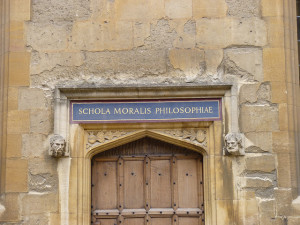
flickr photo by Leonieke Aalders shared under a Creative Commons (BY-NC-ND) license
Things are changing in Arts and Humanities. Researchers are increasingly working with digital materials and using new tools in traditional research locations. Reading itself has been transformed by digital devices. So how can you make the most of digital tools and resources for teaching and learning in the Arts and Humanities?
Being a digital academic
There is a wide range of ways to use, or get involved with, digital tools and resources. For example Professor Tim Hitchcock (Digital History, HAHP) writes about using Twitter and blogs to make academic practice public and publishes his own blog while Dr. Lynne Murphy (Linguistics, English) has recently received a US grant to help write a book based on her very successful blog ‘Separated by a Common Language’. If you aren’t ready to start blogging yourself you can incorporate blogs into your PLN (Personal Learning Network) by following other academics’ blogs using a service like Feedly (see our post on Feedly).
Other digital curation platforms such as Flipboard, Scoop.it, Pearltrees and Pinterest can allow tutors and/or students to bring together and share relevant content. For example, one teacher used Flipboard to ‘curate collections of artifacts’ for his students and as part of my role as Learning Technologist for the Arts and Humanities schools I have created an Arts & Humanities TEL Flipboard magazine.
Twitter can be used to engage students with historical events and allow experimentation with new ways of writing. Response systems such as Poll Everywhere can be used to support peer learning in discursive disciplines.
There are many options for ‘digital humanities projects that can be inexpensively and easily applied to the undergraduate classroom’ using simple to use and free tools. As students engage with such activities they not only learn about their subject but develop digital capabilities that will serve them well beyond university.
Digital resources for your discipline
As well as the digital activities outlined above there is a wealth of resources available online to support teaching and learning in the Arts and Humanities:
Open Culture is a great curation blog whose editor ‘scours the web for the best educational media’ – this includes audio books, language lessons, movies and free courses. It is well worth subscribing to the blog or following @OpenCulture on Twitter to receive updates such as:
- 2,200 Radical Political Posters Digitized: A New Archive
- The Tate Digitizes 70,000 Works of Art; Now Adding 52,000 Letters, Photographs & Sketchbooks from British Artists
- A Quick Introduction to Literary Theory: Watch Animated Videos from the Open University
- The Tree of Languages Illustrated in a Big, Beautiful Infographic
- Listen to the Oldest Song in the World: A Sumerian Hymn Written 3,400 Years Ago
- The Music of Avant-Garde Composer John Cage Now Available in a Free Online Archive
- 135 Free Philosophy eBooks
Historians and media studies scholars might like the British Library website devoted to the feminist magazine Spare Rib where you can look at content from the magazine and learn about its’ operations and objectives.
If you are interested in popular media/culture check out the BBC Genome project which brings together Radio Times listings from 1923 to 2009 and FilmTimeMachine which visualises film data. This timeline of gender in crews of top grossing films 1994-2013 is a good example.
Digital projects have transformed documents of record, such as Hansard (the record of UK parliamentary proceedings) into searchable databases. The Hansard corpus which contains British Parliamentary speeches from 1803-2005 allows fascinating insights into language and politics. Digital Bodleian allows you to virtually rummage in the great library’s holdings – with lots of marvellous historical images and documents.
Soundcloud has many recordings and playlists that could play an interesting part in learning and teaching – including the Berlin Wall of Sound which demonstrates how sound can be used to explore history. For more audio resources try British Library Sounds which offers music, drama, literature and oral history recordings from across the globe.
These are just a few examples of available digital resources. The Sussex TEL website has more information on learning technologies you can use and @SussexTEL often tweets news of digital resources.
If you would like to discuss possibilities for using technology for teaching and learning at Sussex please contact TEL@sussex.ac.uk or your school learning technologist.



[…] Read the full story by University of Sussex Technology Enhanced Learning Blog […]